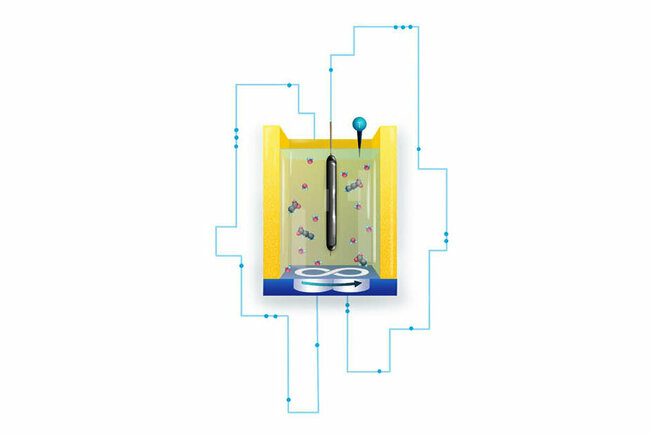Development of Carbon Molecular Sieve Membranes (CMSMs) for membrane reactors
On June 6th Arash Rahimalimamaghani defended his thesis on Carbon Molecular Sieve Membranes.

Separation and purification of chemicals is one of the crucial and most energy intensive processes in the world. In his PhD researcher Arash Rahimalimamaghani focused on the development of CMSMs for gas separation processes such as H2, CO2 and pervaporation processes such as bioethanol dehydration is investigated. CMSMs are produced from phenol- formaldehyde resin (Novolac) and the effect of support type, oligomer molecular weight and coating parameters are investigated according to the hydrophilicity, water permeance and water/ethanol perm-selectivity for bioethanol dehydration.
Traditional gas separation processes such as cryogenic distillation, pressure swing adsorption and absorption require high capital investments, complex operations and high operation costs. Membrane separation technology offers modular, compact, energy efficient and scalable separation for processes such as gas separation, vapor separation and pervaporation. Additionally, the integration of rection and membrane separation for the in situ separation of products could result in high performance by shifting the equilibrium of the reaction and resulting in pure products. Membrane reactors are thus emerged in recent years due to their ability to overcome the limitations of traditional reactors to increase their conversion by removing the product in equilibrium limited reactions. The development of novel material for membranes is one of the significant steps in making the membrane separation technology and membrane reactors suitable for industrial applications. Organic membranes such as polymeric membranes, suffer from low thermal stability at high temperatures or low chemical stability in environments containing high concentrations of CO2, H2S etc. Inorganic membranes are developed from materials such as ceramics, zeolites, metals, carbon and silica. Carbon Molecular Sieve Membranes (CMSMs) are produced from pyrolysis of a thermosetting polymer and offer high permselectivities and permeances due to their adjustable Pore Size Distribution (PSD) and affinity towards the desired molecules. Moreover, CMSMs exhibit high thermal and chemical stability at high temperatures and pressures which enables them to be a potential candidate for membrane reactors.
CMSMs are developed for H2 separation at high temperatures with investigation of the effect of aluminum acetylacetonate (Al(acac)3) in the performance of the CMSMs. The effect of Al(acac)3 on the viscosity of the dip coating solution, the selective layer thickness, change in the hydrophilicity and PSD of the CMSMs are investigated. After the fabrication of CMSMs, the perm-selectivity tests performed on the membranes and H2/N2 separation factor was found to be higher than the Robeson upper bound limit of the polymeric membranes.
Later, CMSMs are prepared from Resorcinol- formaldehyde resin and their performance for separation of CO2 from N2 was examined. In this chapter, the effect of degree of polymerization (DP) on the final perm-selectivity of CMSMs was investigated and the performance of the CMSMs were enhanced by applying a post treatment step after carbonization. All of the CMSMs fabricated from Resorcinol-formaldehyde precursor performed higher than Robeson upper bound of polymeric membranes in terms of CO2/N2 perm-selectivity and CO2 permeability. CO2 separation from CO2 rich industrial gas streams such as flue gas and steel mill plant off gas via CMSMs was investigated. Addition of ethylenediamine to the polymer structure was investigated and CMSMs with narrow PSD and high CO2 perm-selectivity was fabricated from Novolac precursor.
Due to the low concentration of propionic acid in the bioreactors, the efficiency of the propionic acid production relies mainly on in situ separation in the process. CMSMs are modified to control their hydrophilicity/ hydrophobicity to block the water molecules and increase acid/water perm-selectivity. Sacrificial pore former materials used to enlarge the pores in these membranes.
Titel thesis: Development of Carbon Molecular Sieve Membranes (CMSMs) for membrane reactors .Promotors: Fausto gallucci, Martin van Sint Annaland, copromotor: Fernanda Neira d'Angelo